#Ecommerce Website Design Newcastle
Explore tagged Tumblr posts
Text
Why Do You Need A Good eCommerce Website Design?

The backbone of an eCommerce website is its design and layout. If the design is not appealing and useful there is no point in setting up an eCommerce. When one intends to buy a product online, they look for a dealer who is selling the product. Next, they browse the website to check out the product so that they can go ahead and place the order. Will you like to place the order from an eCommerce site that has no images of the products or vital information about the products are missing? Guess not! You will be looking for a website design that will be easy to navigate and will have answers to all your queries. You want a satisfying experience when you are planning to make a purchase online. Then why do you think that you can get away with this when it comes to your eCommerce site? You too have to ensure that the eCommerce website design Central Coast is appealing and serves the purpose.
And for this to happen, you need to get in touch with experts who are well known for excellent eCommerce website design services. You need a professional with proven track record so that he can do justice to your demands for a remarkable eCommerce website design Newcastle. Your website should speak volumes about your company and the products it deals in. and this is only possible when the design is at par with the best in the business. Ensure that you hire the best in the business to get the job done.
0 notes
Text
Waitrosecellar.com Product Information Scraping
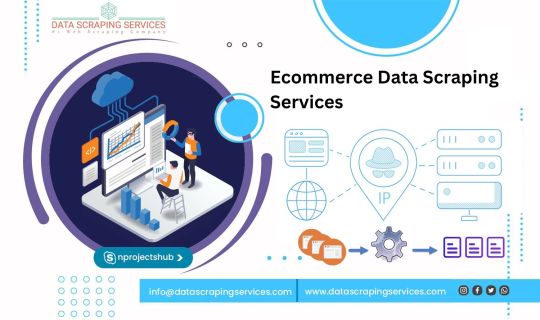
Unlocking Insights: Waitrosecellar.com Product Information Scraping by DataScrapingServices.com
Waitrosecellar.com offers a wide range of premium wines and spirits, making it a valuable resource for wine enthusiasts, retailers, and businesses in the beverage industry. However, manually gathering product information from Waitrosecellar.com can be time-consuming and impractical. DataScrapingServices.com provides a solution with its Product Information Scraping service, designed to extract detailed product data from Waitrosecellar.com efficiently.
List of Data Fields
DataScrapingServices.com’s Waitrosecellar.com Product Information Scraping service captures a comprehensive array of data fields, including:
Product Name
Product Description
Price
Product Category
Bottle Size
Vintage
Availability
Customer Reviews
Product Images
Benefits of Waitrosecellar.com Product Information Scraping
1. Efficient Data Collection: Automating the data extraction process saves time and resources, allowing businesses to focus on analysis and strategy development.
2. Accurate and Up-to-Date Information: By scraping data directly from Waitrosecellar.com, the service ensures that businesses have access to the most current and accurate product information.
3. Enhanced Market Research: Detailed product data enables businesses to conduct thorough market research, analyze trends, and identify opportunities for growth and innovation.
4. Competitive Analysis: Access to competitor product information helps businesses benchmark their offerings, pricing strategies, and marketing approaches.
5. Improved Product Management: Having comprehensive product data allows businesses to effectively manage inventory, pricing, and marketing campaigns.
6. Optimized Pricing Strategies: Analyzing pricing information helps businesses develop competitive pricing strategies and maximize profitability.
7. Customized Marketing Campaigns: Tailoring marketing messages based on detailed product information helps businesses target the right audience and drive sales.
Best eCommerce Data Scraping Services
Asda UK Product Details Scraping
Marks & Spencer Product Details Scraping
Retail Website Data Scraping Services
Kohl's Product Data Extraction
Extracting Product Information from Kogan
Amazon.ca Product Information Scraping
Tesco Product Details Scraping
Online Fashion Store Data Extraction
Next.co.uk Product Pricing Scraping
Amazon Reviews Scraping
Best Waitrosecellar.com Product Information Scraping Services in UK
Liverpool, Southampton, Edinburgh, Cardiff, Newcastle, Manchester, Glasgow, Leeds, London, Birmingham, Sheffield, Nottingham, Belfast, Sunderland, Blackpool, Bournemouth, Warrington, Swindon, Hull, Bristol, Bradford, Preston, Leicester, Coventry, Wolverhampton, Plymouth, Stoke-on-Trent, Norwich, Aberdeen, Derby, Portsmouth, Luton, Brighton, Huddersfield, Exeter, Maidstone, Chester, Cheltenham, Middlesbrough, Peterborough, York, Ipswich, Milton Keynes, Southampton, Oxford, Nottingham, Southampton, Blackburn, Gloucester and Cambridge.
Conclusion
DataScrapingServices.com’s Product Information Scraping service for Waitrosecellar.com empowers businesses in the beverage industry to access detailed and accurate product data efficiently. From enhancing market research to optimizing pricing strategies and marketing campaigns, the benefits of product data scraping are immense. Invest in DataScrapingServices.com’s scraping solutions and gain a competitive edge in the beverage market. Unlock valuable insights and drive business growth with comprehensive product information at your fingertips.
Website: Datascrapingservices.com
Email: [email protected]
#waitrosecellarproductinformationscraping#waitrosecellarwinepricemonitoring#ecommercedatascraping#productdetailsscraping#ecommerceproductpricescraping#datascrapingservices#webscrapingexpert#websitedatascraping
0 notes
Text
Good Web Designers Newcastle can create a good first impression
Good web designers Newcastle can make a uniquely designed website for you. This classy website will not fail to impress any prospective client who enters your website. The reason for the customers visiting your company can differ, may be from an extensive search on the search engines, from a backlink etc.
0 notes
Text
We are Make My Website, a web design agency in newcastle catering to the diverse web design needs of local businesses around. We deliver to your doorstep complete web-design solutions starting from the layout to the graphics and written content that goes on your website.
#web design newcastle#web design agency newcastle#website design newcastle#experienced web designers#ecommerce website design newcastle#newcastle web design#websites newcastle#woocommerce web design newcastle#web design services newcastle#web design newcastle australia
1 note
·
View note
Photo

Custom build #eCommerce website for one of our Fantastic clients over at BabaBing. Built on Craft CMS the site features a custom package builder and beautiful selection of #baby products. #websites #UX #UI #Design #Newcastle #Sunderland #Gateshead https://www.instagram.com/p/B3yx_5eps-6/?igshid=iu8og33mps89
0 notes
Video
tumblr
Affordable Website Design Gold Coast - Bottrell Media
If you restructure your business and want to Redesign your website, You need professional web design services for help. Bottrell Media is the best web design company in Australia. We specialized in web design & development with any budget. For Affordable Website Design in Gold Coast Contact us: https://bit.ly/2CBjRix or call us on: 1300 788 491 or email us: [email protected]
#Website Redesign Newcastle#Affordable Website Design Gold Coast#ecommerce website design sydney#professional website design sydney#Best Web Design Company Maitland#professional web design services
0 notes
Text
Common Avoidable Responsible Design Mistakes
If you are a designer, then you must know some Common Avoidable Responsible Design Mistakes for better designs. Visit https://chetaru.co.uk/common-avoidable-responsive-design-mistakes/ to get complete information.
#Ecommerce Web Design#ecommerce website design#Website design newcastle#professional website design#Web design Newcastle#Web Design Darlington#web design north east#ecommerce web development company#mobile application development
1 note
·
View note
Text
SEO Services in Newcastle
Looking for local SEO services in Melbourne near Newcastle? We’re specialized in Social Media Marketing, Google Ads, SEO services and eCommerce web design and Website Development, and more. Look no further than webgenix to give you the boost that you need.
0 notes
Text
Why is it Necessary for Your eCommerce Website Design to Be Relevant at All Times?

Running an ecommerce website is not without its hassles. You have to make sure that the website is user-friendly and that product information is easily available to the buyers so that they can easily make the purchase. From time to time, you need to update the eCommerce website design Newcastle so that it remains relevant and popular. And for this to happen you need to work with expert web designers who not only understands your requirements but also delivers the work within the stipulated deadline.
Make sure that your eCommerce website design Central Coast is at par with your competitors. Your marketing team should check out what your competitors are doing from time to time and should update you on your findings so that you know what to do and what to avoid. The world of ecommerce is very competitive and challenging. With so many companies offering quality service, you need to keep your game in order so that you don’t fall behind in the line. You have to constantly innovate and reinvent yourself so that your customers look forward to purchasing from your website. You have to keep them hooked onto your site with interesting discounts and sales. At the same time, the website should be easy to navigate and check out from all types of devices. When you offer quality service round the clock no one can beat you. Just make sure that your eCommerce website design Central Coast is something that attracts the buyers all round the clock.
0 notes
Text
Top Web Designers North East for Professional Marketing Services
First Impression is the Best Impression’ is a popular phrase that all of you must have heard, and it’s true in today’s age and time, too. So, to make a good first impression, the ones who can aid you are Web Designers North East, so choose a company for this purpose wisely.
0 notes
Link

Bottrell Media provide professional and affordable website design on the Gold Coast at reasonable costs. Call 1300 788 491 or visit at https://www.bottrellmedia.com.au
#affordable website design gold coast#web hosting Newcastle#Ecommerce Website Design Sydney#website development services newcastle#seo services newcastle#web hosting services melbourne#Newcastle Ecommerce Websites
0 notes
Text
How to Run a Successful Web Design Business
Running a business isn't a rocket-science any longer. With latest technology in web site design and development, professionals are delivery out the best website of a small business. whether or not it's a Ecommerce development company, Web design company, IT firm or an e-commerce store for rental and buy, all businesses demand for a novel and user- friendly web site. So, beginning a venture to render valuable and capable Web design & development company could be a fruitful plan. however changing full- fledged arrange into a moneymaking business could be a feverish method and want knowledgeable analysis of business goals and requisites.
Now let's measure the key factors responsible for beginning a successful business :
Business Goal and Plans
Directionless heading towards a thought could be a complete mess. thus before jumping into the so- known as large world of digital promoting and solutions, determine that sector or trade you want to serve. Retail, Health care, Beauty and mode automobiles, telecommunication, IT, baking and monetary service or improvement services, that is your space of interest? Once it's finalized, you'll target evaluating- what's existing within the market and what's new are often dropped at the table in order that additional and additional guests are often fetched on the web site designed for business.

Client Acquisition
In order to determine a firm that has complete digital solutions to purchasers from across the world, the primary step is shopper Acquisition. You would like to handle comes by yourself or want to rent somebody to try to the task relying upon your budget can decide within which direction to maneuver ahead. The first, acquire customers and knowing their business necessities is that the core to your sensible begin.
This additional involves:
Dealing with prospective Client's desires
Trying to vary client's mind to gift your innovative concepts
Meeting up new purchasers
Handing problems delicately
There isn't one business model to run a business. thus seek each risk to achieve out prospective purchasers from the sphere who should or have already got a web site, persuade them by delivery out best and innovative concepts, to lend them absolute web site design and development services. you will even kindle the upgrade to a brand new web site to avail sensible responses of a audience and increased revenue.
Target Audience Analysis
Each sector has its own preferences ad enlargement zones. Say, as an example, you're getting to style a web site for purchase of house goods, physical science, apparels and grocery; there's a prospective marketplace for reaching out targeted audiences. you wish to bring out best and catchy visuals to fetch interest of homemakers and most vital, create the web site pretty easy and convenient. an ecommerce style with enticing interface would be a perfect resolution to recommend to purchasers within the same sector. move with confidence with project plan and create the business flourish unstoppably.
Team of professionals in website development
The one who might style and convert concepts into implementation is your plan alternative in terms of knowledgeable in web site design. skilled is aware of the intricacies of an honest web site design and the way to handle problems encountered throughout the execution level. purchasers could kindle a very new style with changes, over and yet again, thus be able to advises your best efforts and skills to convert that concept into a fruit as needed.
web designing web designing london web designing birmingham web designing nottingham web designing manchester web designing coventry web designing barnsley web designing wirral web designing leicester web designing stoke on trent web designing bournemouth and poole web designing bristol web designing teesside web designing sheffield web designing liverpool web designing portsmouth web designing leeds web designing wigan web designing southampton web designing aldershot and farnborough web designing derby web designing preston web designing hull web designing plymouth web designing brighton and hove web designing bolton web designing newcastle web designing bradford web designing luton web designing york web designing northampton
#Web Design and Development#web design services#web developers#WEB#web design#Web Design and Developmen
0 notes
Text
News reports and important posts on POS System Equipment and POS.
ERP, short for Enterprise Resource Planning, has become so popular and has been considered a comprehensive solution with numerous benefits. But you may be concerned with the word “Enterprise”, is it for your business? The truth is, regardless of your business size, integrating ERP with your Magento website is a wise decision that will save you money and time in the long run. As so many ERP systems available on the market can make you overwhelmed and unable to decide, we have selected a list of top 7 Magento ERP integrations for your reference. Let’s find the perfect solution for your business.
What are ERP integrations?
How Magento integrates with ERP
Top 7 Magento ERP integrations
Oracle ERP Cloud
Sage ERP
Microsoft Dynamics NAV
SAP Business One
NetSuite
Epicor
JD Edwards
How to determine Magento ERP integration
Can Magento be an eCommerce ERP?
Conclusion
What are ERP integrations?
As you may know, ERP is defined as a solution that covers all operational processes of a business, including:
Supply chain management
Product planning
Procurement
Manufacturing
Sales and marketing
Customer relationship management
Finance and accounting
Risk management
Project management
It centralizes all information of those processes into a single database. ERP integration, physically speaking, is the activity that connects those separate business applications in a unified ERP. At the data level, it connects data from different business processes to create a single source of truth.
How Magento integrates with ERP
If working separately, ERP systems will handle supply chain management, purchasing, inventory management, and invoicing, while Magento deals with the product cycle of online retail. The Magento ERP integration will create inter-communication for you to synchronize data between your ERP system and Magento, providing real-time status and updates. The synchronized data includes customers, order details, products, and categories.
By integrating your Magento website to an ERP solution, it becomes your eCommerce ERP integration that helps you:
Record, manage, and share eCommerce data with the integrated ERP solution for better insights and productivity
Eliminate duplication for data integrity
Automate online and offline business processes for effectiveness
Reduce administrative and operational costs for higher revenue
Store data at a higher level of security

To do that, Magento offers a wide variety of flexible APIs (Application Programming Interface) to connect with most of the best popular ERP solutions, which can integrate perfectly no matter if your ERP system is customized or not. Using the API as a connection is like building a two-way street:
Build a Magento extension
Connect to the ERP via the API of that Magento extension
Pull product data and push orders, customers details from Magento into ERP
Then build an ERP extension
Connect to Magento via the API of that extension
Push product data and pull orders, customers details from the ERP back to Magento
The touchpoints of Magento ERP integration usually include product categories, category navigation, customer accounts, price lists, orders, shipments, and invoices, but can be different based on business type:
Main touchpoints of Magento ERP integration for B2C websites:
Sales orders
Inventory
Status updates
Tracking numbers
Main touchpoints of Magento ERP integration for B2B websites:
Customers records
Pricing
Terms
Invoices
Statements
Based on these main touchpoints, the overall design features can go from complex to simple. Some ERP solutions are designed to be suitable for all kinds of SMEs while others only focus on a specific business size.
As a decision maker of your business, you may have a Magento website and need to select an ERP solution. It’s time to look at the top 7 ERP solutions that can integrate with Magento.
Top 7 Magento ERP integrations
1. Magento integration with Oracle ERP Cloud

Oracle is one of the leading giants in the field of data systems, standing as the second-largest software company in 2020. Oracle ERP Cloud is one part of the Oracle E-Business Suite. Depending on your business demand, you can select only this ERP application or the whole suite because each component has a separate license. Most leading companies in the world are using Oracle to securely keep data and automate their routine processes to help reduce costs and increase efficiency.
Type: cloud-based
Number of customers: 31,500 companies
Recommended business size: 1000–5000 employees and over $1,000M in annual revenue
Key ERP features:
Financials
Project management
Procurement
Risk management and compliance
Enterprise performance management (EPM)
Supply chain and manufacturing
ERP analytics
Key points of Magento ERP integration with Oracle ERP Cloud:
Eliminate data redundancy and duplication
Exchange data automatically from Magento into Oracle ERP and vice versa
Transfer information in real time and high security
Synchronize new orders automatically
Synchronize all updates bi-directionally
2. Magento integration with Sage ERP

Sage is a British software company based in Newcastle and a multinational enterprise. Sage ERP solutions have strong points on intelligence monitoring threats and frequent update patches providing advanced protection of critical data. It’s a fully integrated system of accounting and finances, manufacturing, and distribution needs. All business operations can be performed easily and quickly with it.
Type: cloud-based
Number of customers: 27,735 companies
Recommended business size: 1000–5000 employees and $10M–50M in annual revenue
Key ERP features:
Accounting and finance
Mobile access
Purchasing and supplier management
Project and vendor management
Inventory and warehousing
Human resource management and payroll integration
Sales, marketing, and customer service
Business intelligence (BI) and reporting
Multi currency and bank feeds
Key points of Magento ERP integration with Sage is pushing and pulling data, including:
Sales order
Status update
Product details
Inventory details
Customer information
Payments and shipping
3. Magento integration with Microsoft Dynamics NAV

Microsoft Dynamics NAV, now known as Dynamics 365 Business Central, is a global ERP solution designed for medium and small scale eCommerce. It provides higher control over simplifying manufacturing, financial entries, operation, and supply chain. Another big advantage of this solution is its short deployment time, user-friendliness, and ease of use.
Also, Dynamics 365 Business Central gathers all data, documents, business applications, and devices to optimize the results of your eCommerce retail. It’s famous for the flexibility to deploy in the cloud or on-premises with Business Central.
Type: both cloud-based and on-premise
Number of customers: 110,000 companies
Recommended business size: 50–200 employees and 1M–10M dollars in annual revenue
Key ERP features:
Finance management
Sales and marketing
Sales and delivery
Purchasing and payables
Inventory
Supply planning and availability
Project management
Service management
Warehouse management
Manufacturing
Key points of Magento ERP integration with Microsoft Dynamics NAV:
Manage cash, assets, and banking
Track and manage production, inventory, orders, and vendors
Manage campaigns, sales opportunities, contacts, and service contracts
Track real-time visibility and analytics for insightful performance
Create estimates, track projects, and manage capacity
4. Magento integration with SAP Business One

SAP Business One is the most useful ERP solution for large and medium businesses. It’s the marketing leader when you are looking for an ERP integration solution for your online business for fast deployment. It can help you with various processes like accounting, logistics, human resources, business warehouse, and intelligent analysis with Integrated Business Intelligence (BI).
Type: cloud-based
Number of customers: 60,000 companies
Recommended business size: 10–200 employees and $1M–$50M in annual revenue
Key ERP features:
Data analysis and reporting
Customer relationship management
Accounting
Tracking and visibility
Human resource management
Financial management
Sales and customer management
Inventory and production functionality
Purchasing
Key points of Magento ERP integration with SAP:
Export orders from Magento platform to SAP ERP
Customer import from SAP ERP to Magento platform
Import promotional pricing, catalog, inventory from SAP into Magento
Automate accurate financial entry, auto update of order status, real-time stock sync to avoid no-stock scenario
Process orders quickly to save valuable time
Reduce manual effort
Increase online sales and boost traffic
5. Magento integration with NetSuite

NetSuite ERP is widely used by eCommerce businesses along with Magento’s scalability and flexibility. Integrating your Magento eCommerce store with NetSuite ERP gives you the right tools to speed up your online business, including customer data and real-time reports so you can make smarter decisions and increase profits.
Type: cloud-based
Number of customers: 24,000 companies
Recommended business size: 10–50 employees and $1M–10M in annual revenue
Key ERP features:
Supply chain intelligence
Flexible payment acceptance
Integrated process workflow
Gross requirements inquiry
Incentive compensation management
Key points of Magento ERP integration with Sage:
Manage product data in NetSuite to update in Magento
Synchronize order data flows and customer from Magento to NetSuite
Pass shipments in NetSuite back to Magento
Ensure queuing system in Magento side without waiting for NetSuite to accept the data
6. Magento integration with Epicor
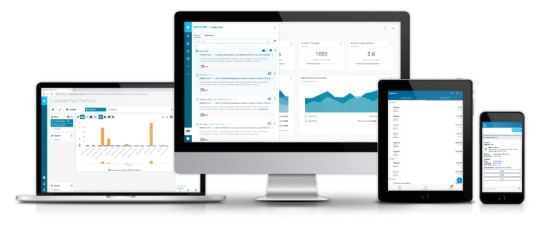
Epicor is a modern ERP solution that you can integrate with Magento, providing agility and flexibility to make smart decisions. Its highest aim is to improve customer responsiveness, streamline processes, and reduce costs.
Type: both cloud-based and on-premises
Number of customers: 7,591 companies
Recommended business size: 50–200 employees and $10M–50M in annual revenue
Key ERP features:
Financials
Human resources
Manufacturing management
Inventory management
Purchasing management
Quality management
Sales management
Key points of Magento ERP integration with Epicor:
Inbound cash receipts and sales order in Epicor
Inbound shipment creation, inbound customer, inventory and inbound products update at Magento
Sales order and Cash receipts in Epicor
Shipment creates, customer, inventory update, and product update
Consolidated invoice, outbound inventory, customer export, outbound product, outbound posed invoice, shipment export, and outbound sales order in Epicor ERP
7. Magento integration with JD Edwards

JD Edwards is a division of Oracle. The ERP solution’s full name is Oracle JD Edwards EnterpriseOne, which is suitable for all business fields of SMEs such as consumer goods, finance, human resources, manufacturing, and distribution.
Type: both cloud-based and on-premises
Number of customers: 17,158 companies
Recommended business size: 50–200 employees and $10M–50M in annual revenue
Key ERP features:
Asset lifecycle management (ALM)
Financial management
Human capital management
Project management
Order management
Manufacturing management
Key points of Magento ERP integration with JD Edwards:
Sync address books and update shipment between two systems
Sync taxes information from Oracle JD Edwards to Magento in real time
Update real time inventory and pricing between two systems
Pass orders and customers information from Magento to Oracle JD Edwards
Display all offline or online orders to see full order history on the Magento
Allow viewing receivable balances and making smart purchases
How to determine Magento ERP integration
After you have understood the methods and options for integrating ERP software with Magento, you’ll probably think about how to choose the most suitable ERP. There are some criteria we suggest to consider, such as:
Your business size
Magento version of your site (Open Source or Commerce)
Your types of data:
Determine all Magento data points that the ERP solution will need to accept
Match the data to correspond to fields in Magento and the ERP solution
Understand the frequency of data transactions (real-time, multiple times per day, nightly batch)
Determine where the data will be placed
Features of the ERP solution you intend to adopt and the Magento ERP integration method. For example, an ERP system can handle fulfillment operations to process your orders and shipping data so it’s recommended to check the compatibility before making a choice. Or whether you have offline stores, electronic data interchange (EDI) sales or other wholesale operations, or manufacture.
Can Magento be an eCommerce ERP?
After reading about connecting Magento and ERP functions, many merchants will ask a common question: Can Magento be an eCommerce ERP?

Magento is an open source eCommerce platform with high flexibility. Magento itself already covers basic operational features such as management for your customers, products, orders, shipping, and payments. Some Magento ERP even offer the ability to manage business processes such as product distribution and suppliers.
In other words, combining additional Magento extensions or using Magento omnichannel solutions can turn your Magento into a centralized ERP for retailers. They can help to expand Magento’s powerful capabilities to track all your business activities and boost your daily productivity.
Conclusion
Integrating ERP with Magento is possible and can bring many benefits to the eCommerce business. However, it will take huge financial resources and time to implement, so it is necessary to determine the strengths and weaknesses of the current solution, define the requirements of your business, list the criteria, and go with trusted providers.
Magento ERP integration can put you ahead in the race so it’s a worthy investment. The sooner you decide, the more you’ll save in the future.
Get a Free Business Consultation
The post Top 7 Magento ERP integrations (2021) appeared first on World’s #1 POS for Magento.
This post was first published here.
I hope that you found the above of help and/or interesting. Similar content can be found on our blog here: northtxpointofsale.com Let me have your feedback below in the comments section. Let us know what topics we should write about for you in the future.
youtube
#Point of Sale#clover Pos Reviews#Clover Support#harbortouch Pos#lightspeed Retail#lightspeed Software#shopkeep Reviews#toast Pos Pricing#toast Pos Reviews#toast Restaurant Pos#touchbistro Pricing
0 notes
Text
News reports and important posts on POS System Equipment and POS.
ERP, short for Enterprise Resource Planning, has become so popular and has been considered a comprehensive solution with numerous benefits. But you may be concerned with the word “Enterprise”, is it for your business? The truth is, regardless of your business size, integrating ERP with your Magento website is a wise decision that will save you money and time in the long run. As so many ERP systems available on the market can make you overwhelmed and unable to decide, we have selected a list of top 7 Magento ERP integrations for your reference. Let’s find the perfect solution for your business.
What are ERP integrations?
How Magento integrates with ERP
Top 7 Magento ERP integrations
Oracle ERP Cloud
Sage ERP
Microsoft Dynamics NAV
SAP Business One
NetSuite
Epicor
JD Edwards
How to determine Magento ERP integration
Can Magento be an eCommerce ERP?
Conclusion
What are ERP integrations?
As you may know, ERP is defined as a solution that covers all operational processes of a business, including:
Supply chain management
Product planning
Procurement
Manufacturing
Sales and marketing
Customer relationship management
Finance and accounting
Risk management
Project management
It centralizes all information of those processes into a single database. ERP integration, physically speaking, is the activity that connects those separate business applications in a unified ERP. At the data level, it connects data from different business processes to create a single source of truth.
How Magento integrates with ERP
If working separately, ERP systems will handle supply chain management, purchasing, inventory management, and invoicing, while Magento deals with the product cycle of online retail. The Magento ERP integration will create inter-communication for you to synchronize data between your ERP system and Magento, providing real-time status and updates. The synchronized data includes customers, order details, products, and categories.
By integrating your Magento website to an ERP solution, it becomes your eCommerce ERP integration that helps you:
Record, manage, and share eCommerce data with the integrated ERP solution for better insights and productivity
Eliminate duplication for data integrity
Automate online and offline business processes for effectiveness
Reduce administrative and operational costs for higher revenue
Store data at a higher level of security

To do that, Magento offers a wide variety of flexible APIs (Application Programming Interface) to connect with most of the best popular ERP solutions, which can integrate perfectly no matter if your ERP system is customized or not. Using the API as a connection is like building a two-way street:
Build a Magento extension
Connect to the ERP via the API of that Magento extension
Pull product data and push orders, customers details from Magento into ERP
Then build an ERP extension
Connect to Magento via the API of that extension
Push product data and pull orders, customers details from the ERP back to Magento
The touchpoints of Magento ERP integration usually include product categories, category navigation, customer accounts, price lists, orders, shipments, and invoices, but can be different based on business type:
Main touchpoints of Magento ERP integration for B2C websites:
Sales orders
Inventory
Status updates
Tracking numbers
Main touchpoints of Magento ERP integration for B2B websites:
Customers records
Pricing
Terms
Invoices
Statements
Based on these main touchpoints, the overall design features can go from complex to simple. Some ERP solutions are designed to be suitable for all kinds of SMEs while others only focus on a specific business size.
As a decision maker of your business, you may have a Magento website and need to select an ERP solution. It’s time to look at the top 7 ERP solutions that can integrate with Magento.
Top 7 Magento ERP integrations
1. Magento integration with Oracle ERP Cloud

Oracle is one of the leading giants in the field of data systems, standing as the second-largest software company in 2020. Oracle ERP Cloud is one part of the Oracle E-Business Suite. Depending on your business demand, you can select only this ERP application or the whole suite because each component has a separate license. Most leading companies in the world are using Oracle to securely keep data and automate their routine processes to help reduce costs and increase efficiency.
Type: cloud-based
Number of customers: 31,500 companies
Recommended business size: 1000–5000 employees and over $1,000M in annual revenue
Key ERP features:
Financials
Project management
Procurement
Risk management and compliance
Enterprise performance management (EPM)
Supply chain and manufacturing
ERP analytics
Key points of Magento ERP integration with Oracle ERP Cloud:
Eliminate data redundancy and duplication
Exchange data automatically from Magento into Oracle ERP and vice versa
Transfer information in real time and high security
Synchronize new orders automatically
Synchronize all updates bi-directionally
2. Magento integration with Sage ERP

Sage is a British software company based in Newcastle and a multinational enterprise. Sage ERP solutions have strong points on intelligence monitoring threats and frequent update patches providing advanced protection of critical data. It’s a fully integrated system of accounting and finances, manufacturing, and distribution needs. All business operations can be performed easily and quickly with it.
Type: cloud-based
Number of customers: 27,735 companies
Recommended business size: 1000–5000 employees and $10M–50M in annual revenue
Key ERP features:
Accounting and finance
Mobile access
Purchasing and supplier management
Project and vendor management
Inventory and warehousing
Human resource management and payroll integration
Sales, marketing, and customer service
Business intelligence (BI) and reporting
Multi currency and bank feeds
Key points of Magento ERP integration with Sage is pushing and pulling data, including:
Sales order
Status update
Product details
Inventory details
Customer information
Payments and shipping
3. Magento integration with Microsoft Dynamics NAV

Microsoft Dynamics NAV, now known as Dynamics 365 Business Central, is a global ERP solution designed for medium and small scale eCommerce. It provides higher control over simplifying manufacturing, financial entries, operation, and supply chain. Another big advantage of this solution is its short deployment time, user-friendliness, and ease of use.
Also, Dynamics 365 Business Central gathers all data, documents, business applications, and devices to optimize the results of your eCommerce retail. It’s famous for the flexibility to deploy in the cloud or on-premises with Business Central.
Type: both cloud-based and on-premise
Number of customers: 110,000 companies
Recommended business size: 50–200 employees and 1M–10M dollars in annual revenue
Key ERP features:
Finance management
Sales and marketing
Sales and delivery
Purchasing and payables
Inventory
Supply planning and availability
Project management
Service management
Warehouse management
Manufacturing
Key points of Magento ERP integration with Microsoft Dynamics NAV:
Manage cash, assets, and banking
Track and manage production, inventory, orders, and vendors
Manage campaigns, sales opportunities, contacts, and service contracts
Track real-time visibility and analytics for insightful performance
Create estimates, track projects, and manage capacity
4. Magento integration with SAP Business One

SAP Business One is the most useful ERP solution for large and medium businesses. It’s the marketing leader when you are looking for an ERP integration solution for your online business for fast deployment. It can help you with various processes like accounting, logistics, human resources, business warehouse, and intelligent analysis with Integrated Business Intelligence (BI).
Type: cloud-based
Number of customers: 60,000 companies
Recommended business size: 10–200 employees and $1M–$50M in annual revenue
Key ERP features:
Data analysis and reporting
Customer relationship management
Accounting
Tracking and visibility
Human resource management
Financial management
Sales and customer management
Inventory and production functionality
Purchasing
Key points of Magento ERP integration with SAP:
Export orders from Magento platform to SAP ERP
Customer import from SAP ERP to Magento platform
Import promotional pricing, catalog, inventory from SAP into Magento
Automate accurate financial entry, auto update of order status, real-time stock sync to avoid no-stock scenario
Process orders quickly to save valuable time
Reduce manual effort
Increase online sales and boost traffic
5. Magento integration with NetSuite

NetSuite ERP is widely used by eCommerce businesses along with Magento’s scalability and flexibility. Integrating your Magento eCommerce store with NetSuite ERP gives you the right tools to speed up your online business, including customer data and real-time reports so you can make smarter decisions and increase profits.
Type: cloud-based
Number of customers: 24,000 companies
Recommended business size: 10–50 employees and $1M–10M in annual revenue
Key ERP features:
Supply chain intelligence
Flexible payment acceptance
Integrated process workflow
Gross requirements inquiry
Incentive compensation management
Key points of Magento ERP integration with Sage:
Manage product data in NetSuite to update in Magento
Synchronize order data flows and customer from Magento to NetSuite
Pass shipments in NetSuite back to Magento
Ensure queuing system in Magento side without waiting for NetSuite to accept the data
6. Magento integration with Epicor
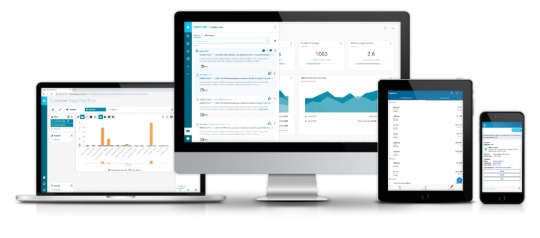
Epicor is a modern ERP solution that you can integrate with Magento, providing agility and flexibility to make smart decisions. Its highest aim is to improve customer responsiveness, streamline processes, and reduce costs.
Type: both cloud-based and on-premises
Number of customers: 7,591 companies
Recommended business size: 50–200 employees and $10M–50M in annual revenue
Key ERP features:
Financials
Human resources
Manufacturing management
Inventory management
Purchasing management
Quality management
Sales management
Key points of Magento ERP integration with Epicor:
Inbound cash receipts and sales order in Epicor
Inbound shipment creation, inbound customer, inventory and inbound products update at Magento
Sales order and Cash receipts in Epicor
Shipment creates, customer, inventory update, and product update
Consolidated invoice, outbound inventory, customer export, outbound product, outbound posed invoice, shipment export, and outbound sales order in Epicor ERP
7. Magento integration with JD Edwards

JD Edwards is a division of Oracle. The ERP solution’s full name is Oracle JD Edwards EnterpriseOne, which is suitable for all business fields of SMEs such as consumer goods, finance, human resources, manufacturing, and distribution.
Type: both cloud-based and on-premises
Number of customers: 17,158 companies
Recommended business size: 50–200 employees and $10M–50M in annual revenue
Key ERP features:
Asset lifecycle management (ALM)
Financial management
Human capital management
Project management
Order management
Manufacturing management
Key points of Magento ERP integration with JD Edwards:
Sync address books and update shipment between two systems
Sync taxes information from Oracle JD Edwards to Magento in real time
Update real time inventory and pricing between two systems
Pass orders and customers information from Magento to Oracle JD Edwards
Display all offline or online orders to see full order history on the Magento
Allow viewing receivable balances and making smart purchases
How to determine Magento ERP integration
After you have understood the methods and options for integrating ERP software with Magento, you’ll probably think about how to choose the most suitable ERP. There are some criteria we suggest to consider, such as:
Your business size
Magento version of your site (Open Source or Commerce)
Your types of data:
Determine all Magento data points that the ERP solution will need to accept
Match the data to correspond to fields in Magento and the ERP solution
Understand the frequency of data transactions (real-time, multiple times per day, nightly batch)
Determine where the data will be placed
Features of the ERP solution you intend to adopt and the Magento ERP integration method. For example, an ERP system can handle fulfillment operations to process your orders and shipping data so it’s recommended to check the compatibility before making a choice. Or whether you have offline stores, electronic data interchange (EDI) sales or other wholesale operations, or manufacture.
Can Magento be an eCommerce ERP?
After reading about connecting Magento and ERP functions, many merchants will ask a common question: Can Magento be an eCommerce ERP?

Magento is an open source eCommerce platform with high flexibility. Magento itself already covers basic operational features such as management for your customers, products, orders, shipping, and payments. Some Magento ERP even offer the ability to manage business processes such as product distribution and suppliers.
In other words, combining additional Magento extensions or using Magento omnichannel solutions can turn your Magento into a centralized ERP for retailers. They can help to expand Magento’s powerful capabilities to track all your business activities and boost your daily productivity.
Conclusion
Integrating ERP with Magento is possible and can bring many benefits to the eCommerce business. However, it will take huge financial resources and time to implement, so it is necessary to determine the strengths and weaknesses of the current solution, define the requirements of your business, list the criteria, and go with trusted providers.
Magento ERP integration can put you ahead in the race so it’s a worthy investment. The sooner you decide, the more you’ll save in the future.
Get a Free Business Consultation
The post Top 7 Magento ERP integrations (2021) appeared first on World’s #1 POS for Magento.
This post was first published here.
I hope that you found the above of help and/or interesting. Similar content can be found on our blog here: northtxpointofsale.com Let me have your feedback below in the comments section. Let us know what topics we should write about for you in the future.
youtube
#Point of Sale#clover Pos Reviews#Clover Support#harbortouch Pos#lightspeed Retail#lightspeed Software#shopkeep Reviews#toast Pos Pricing#toast Pos Reviews#toast Restaurant Pos#touchbistro Pricing
0 notes
Text
News reports and important posts on POS System Equipment and POS.
ERP, short for Enterprise Resource Planning, has become so popular and has been considered a comprehensive solution with numerous benefits. But you may be concerned with the word “Enterprise”, is it for your business? The truth is, regardless of your business size, integrating ERP with your Magento website is a wise decision that will save you money and time in the long run. As so many ERP systems available on the market can make you overwhelmed and unable to decide, we have selected a list of top 7 Magento ERP integrations for your reference. Let’s find the perfect solution for your business.
What are ERP integrations?
How Magento integrates with ERP
Top 7 Magento ERP integrations
Oracle ERP Cloud
Sage ERP
Microsoft Dynamics NAV
SAP Business One
NetSuite
Epicor
JD Edwards
How to determine Magento ERP integration
Can Magento be an eCommerce ERP?
Conclusion
What are ERP integrations?
As you may know, ERP is defined as a solution that covers all operational processes of a business, including:
Supply chain management
Product planning
Procurement
Manufacturing
Sales and marketing
Customer relationship management
Finance and accounting
Risk management
Project management
It centralizes all information of those processes into a single database. ERP integration, physically speaking, is the activity that connects those separate business applications in a unified ERP. At the data level, it connects data from different business processes to create a single source of truth.
How Magento integrates with ERP
If working separately, ERP systems will handle supply chain management, purchasing, inventory management, and invoicing, while Magento deals with the product cycle of online retail. The Magento ERP integration will create inter-communication for you to synchronize data between your ERP system and Magento, providing real-time status and updates. The synchronized data includes customers, order details, products, and categories.
By integrating your Magento website to an ERP solution, it becomes your eCommerce ERP integration that helps you:
Record, manage, and share eCommerce data with the integrated ERP solution for better insights and productivity
Eliminate duplication for data integrity
Automate online and offline business processes for effectiveness
Reduce administrative and operational costs for higher revenue
Store data at a higher level of security

To do that, Magento offers a wide variety of flexible APIs (Application Programming Interface) to connect with most of the best popular ERP solutions, which can integrate perfectly no matter if your ERP system is customized or not. Using the API as a connection is like building a two-way street:
Build a Magento extension
Connect to the ERP via the API of that Magento extension
Pull product data and push orders, customers details from Magento into ERP
Then build an ERP extension
Connect to Magento via the API of that extension
Push product data and pull orders, customers details from the ERP back to Magento
The touchpoints of Magento ERP integration usually include product categories, category navigation, customer accounts, price lists, orders, shipments, and invoices, but can be different based on business type:
Main touchpoints of Magento ERP integration for B2C websites:
Sales orders
Inventory
Status updates
Tracking numbers
Main touchpoints of Magento ERP integration for B2B websites:
Customers records
Pricing
Terms
Invoices
Statements
Based on these main touchpoints, the overall design features can go from complex to simple. Some ERP solutions are designed to be suitable for all kinds of SMEs while others only focus on a specific business size.
As a decision maker of your business, you may have a Magento website and need to select an ERP solution. It’s time to look at the top 7 ERP solutions that can integrate with Magento.
Top 7 Magento ERP integrations
1. Magento integration with Oracle ERP Cloud

Oracle is one of the leading giants in the field of data systems, standing as the second-largest software company in 2020. Oracle ERP Cloud is one part of the Oracle E-Business Suite. Depending on your business demand, you can select only this ERP application or the whole suite because each component has a separate license. Most leading companies in the world are using Oracle to securely keep data and automate their routine processes to help reduce costs and increase efficiency.
Type: cloud-based
Number of customers: 31,500 companies
Recommended business size: 1000–5000 employees and over $1,000M in annual revenue
Key ERP features:
Financials
Project management
Procurement
Risk management and compliance
Enterprise performance management (EPM)
Supply chain and manufacturing
ERP analytics
Key points of Magento ERP integration with Oracle ERP Cloud:
Eliminate data redundancy and duplication
Exchange data automatically from Magento into Oracle ERP and vice versa
Transfer information in real time and high security
Synchronize new orders automatically
Synchronize all updates bi-directionally
2. Magento integration with Sage ERP

Sage is a British software company based in Newcastle and a multinational enterprise. Sage ERP solutions have strong points on intelligence monitoring threats and frequent update patches providing advanced protection of critical data. It’s a fully integrated system of accounting and finances, manufacturing, and distribution needs. All business operations can be performed easily and quickly with it.
Type: cloud-based
Number of customers: 27,735 companies
Recommended business size: 1000–5000 employees and $10M–50M in annual revenue
Key ERP features:
Accounting and finance
Mobile access
Purchasing and supplier management
Project and vendor management
Inventory and warehousing
Human resource management and payroll integration
Sales, marketing, and customer service
Business intelligence (BI) and reporting
Multi currency and bank feeds
Key points of Magento ERP integration with Sage is pushing and pulling data, including:
Sales order
Status update
Product details
Inventory details
Customer information
Payments and shipping
3. Magento integration with Microsoft Dynamics NAV

Microsoft Dynamics NAV, now known as Dynamics 365 Business Central, is a global ERP solution designed for medium and small scale eCommerce. It provides higher control over simplifying manufacturing, financial entries, operation, and supply chain. Another big advantage of this solution is its short deployment time, user-friendliness, and ease of use.
Also, Dynamics 365 Business Central gathers all data, documents, business applications, and devices to optimize the results of your eCommerce retail. It’s famous for the flexibility to deploy in the cloud or on-premises with Business Central.
Type: both cloud-based and on-premise
Number of customers: 110,000 companies
Recommended business size: 50–200 employees and 1M–10M dollars in annual revenue
Key ERP features:
Finance management
Sales and marketing
Sales and delivery
Purchasing and payables
Inventory
Supply planning and availability
Project management
Service management
Warehouse management
Manufacturing
Key points of Magento ERP integration with Microsoft Dynamics NAV:
Manage cash, assets, and banking
Track and manage production, inventory, orders, and vendors
Manage campaigns, sales opportunities, contacts, and service contracts
Track real-time visibility and analytics for insightful performance
Create estimates, track projects, and manage capacity
4. Magento integration with SAP Business One

SAP Business One is the most useful ERP solution for large and medium businesses. It’s the marketing leader when you are looking for an ERP integration solution for your online business for fast deployment. It can help you with various processes like accounting, logistics, human resources, business warehouse, and intelligent analysis with Integrated Business Intelligence (BI).
Type: cloud-based
Number of customers: 60,000 companies
Recommended business size: 10–200 employees and $1M–$50M in annual revenue
Key ERP features:
Data analysis and reporting
Customer relationship management
Accounting
Tracking and visibility
Human resource management
Financial management
Sales and customer management
Inventory and production functionality
Purchasing
Key points of Magento ERP integration with SAP:
Export orders from Magento platform to SAP ERP
Customer import from SAP ERP to Magento platform
Import promotional pricing, catalog, inventory from SAP into Magento
Automate accurate financial entry, auto update of order status, real-time stock sync to avoid no-stock scenario
Process orders quickly to save valuable time
Reduce manual effort
Increase online sales and boost traffic
5. Magento integration with NetSuite

NetSuite ERP is widely used by eCommerce businesses along with Magento’s scalability and flexibility. Integrating your Magento eCommerce store with NetSuite ERP gives you the right tools to speed up your online business, including customer data and real-time reports so you can make smarter decisions and increase profits.
Type: cloud-based
Number of customers: 24,000 companies
Recommended business size: 10–50 employees and $1M–10M in annual revenue
Key ERP features:
Supply chain intelligence
Flexible payment acceptance
Integrated process workflow
Gross requirements inquiry
Incentive compensation management
Key points of Magento ERP integration with Sage:
Manage product data in NetSuite to update in Magento
Synchronize order data flows and customer from Magento to NetSuite
Pass shipments in NetSuite back to Magento
Ensure queuing system in Magento side without waiting for NetSuite to accept the data
6. Magento integration with Epicor
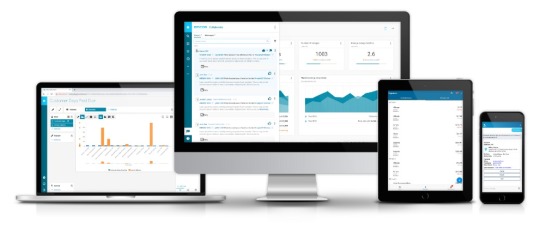
Epicor is a modern ERP solution that you can integrate with Magento, providing agility and flexibility to make smart decisions. Its highest aim is to improve customer responsiveness, streamline processes, and reduce costs.
Type: both cloud-based and on-premises
Number of customers: 7,591 companies
Recommended business size: 50–200 employees and $10M–50M in annual revenue
Key ERP features:
Financials
Human resources
Manufacturing management
Inventory management
Purchasing management
Quality management
Sales management
Key points of Magento ERP integration with Epicor:
Inbound cash receipts and sales order in Epicor
Inbound shipment creation, inbound customer, inventory and inbound products update at Magento
Sales order and Cash receipts in Epicor
Shipment creates, customer, inventory update, and product update
Consolidated invoice, outbound inventory, customer export, outbound product, outbound posed invoice, shipment export, and outbound sales order in Epicor ERP
7. Magento integration with JD Edwards

JD Edwards is a division of Oracle. The ERP solution’s full name is Oracle JD Edwards EnterpriseOne, which is suitable for all business fields of SMEs such as consumer goods, finance, human resources, manufacturing, and distribution.
Type: both cloud-based and on-premises
Number of customers: 17,158 companies
Recommended business size: 50–200 employees and $10M–50M in annual revenue
Key ERP features:
Asset lifecycle management (ALM)
Financial management
Human capital management
Project management
Order management
Manufacturing management
Key points of Magento ERP integration with JD Edwards:
Sync address books and update shipment between two systems
Sync taxes information from Oracle JD Edwards to Magento in real time
Update real time inventory and pricing between two systems
Pass orders and customers information from Magento to Oracle JD Edwards
Display all offline or online orders to see full order history on the Magento
Allow viewing receivable balances and making smart purchases
How to determine Magento ERP integration
After you have understood the methods and options for integrating ERP software with Magento, you’ll probably think about how to choose the most suitable ERP. There are some criteria we suggest to consider, such as:
Your business size
Magento version of your site (Open Source or Commerce)
Your types of data:
Determine all Magento data points that the ERP solution will need to accept
Match the data to correspond to fields in Magento and the ERP solution
Understand the frequency of data transactions (real-time, multiple times per day, nightly batch)
Determine where the data will be placed
Features of the ERP solution you intend to adopt and the Magento ERP integration method. For example, an ERP system can handle fulfillment operations to process your orders and shipping data so it’s recommended to check the compatibility before making a choice. Or whether you have offline stores, electronic data interchange (EDI) sales or other wholesale operations, or manufacture.
Can Magento be an eCommerce ERP?
After reading about connecting Magento and ERP functions, many merchants will ask a common question: Can Magento be an eCommerce ERP?

Magento is an open source eCommerce platform with high flexibility. Magento itself already covers basic operational features such as management for your customers, products, orders, shipping, and payments. Some Magento ERP even offer the ability to manage business processes such as product distribution and suppliers.
In other words, combining additional Magento extensions or using Magento omnichannel solutions can turn your Magento into a centralized ERP for retailers. They can help to expand Magento’s powerful capabilities to track all your business activities and boost your daily productivity.
Conclusion
Integrating ERP with Magento is possible and can bring many benefits to the eCommerce business. However, it will take huge financial resources and time to implement, so it is necessary to determine the strengths and weaknesses of the current solution, define the requirements of your business, list the criteria, and go with trusted providers.
Magento ERP integration can put you ahead in the race so it’s a worthy investment. The sooner you decide, the more you’ll save in the future.
Get a Free Business Consultation
The post Top 7 Magento ERP integrations (2021) appeared first on World’s #1 POS for Magento.
This post was first published here.
I hope that you found the above of help and/or interesting. Similar content can be found on our blog here: northtxpointofsale.com Let me have your feedback below in the comments section. Let us know what topics we should write about for you in the future.
youtube
#Point of Sale#clover Pos Reviews#Clover Support#harbortouch Pos#lightspeed Retail#lightspeed Software#shopkeep Reviews#toast Pos Pricing#toast Pos Reviews#toast Restaurant Pos#touchbistro Pricing
0 notes
Text
News reports and important posts on POS System Equipment and POS.
ERP, short for Enterprise Resource Planning, has become so popular and has been considered a comprehensive solution with numerous benefits. But you may be concerned with the word “Enterprise”, is it for your business? The truth is, regardless of your business size, integrating ERP with your Magento website is a wise decision that will save you money and time in the long run. As so many ERP systems available on the market can make you overwhelmed and unable to decide, we have selected a list of top 7 Magento ERP integrations for your reference. Let’s find the perfect solution for your business.
What are ERP integrations?
How Magento integrates with ERP
Top 7 Magento ERP integrations
Oracle ERP Cloud
Sage ERP
Microsoft Dynamics NAV
SAP Business One
NetSuite
Epicor
JD Edwards
How to determine Magento ERP integration
Can Magento be an eCommerce ERP?
Conclusion
What are ERP integrations?
As you may know, ERP is defined as a solution that covers all operational processes of a business, including:
Supply chain management
Product planning
Procurement
Manufacturing
Sales and marketing
Customer relationship management
Finance and accounting
Risk management
Project management
It centralizes all information of those processes into a single database. ERP integration, physically speaking, is the activity that connects those separate business applications in a unified ERP. At the data level, it connects data from different business processes to create a single source of truth.
How Magento integrates with ERP
If working separately, ERP systems will handle supply chain management, purchasing, inventory management, and invoicing, while Magento deals with the product cycle of online retail. The Magento ERP integration will create inter-communication for you to synchronize data between your ERP system and Magento, providing real-time status and updates. The synchronized data includes customers, order details, products, and categories.
By integrating your Magento website to an ERP solution, it becomes your eCommerce ERP integration that helps you:
Record, manage, and share eCommerce data with the integrated ERP solution for better insights and productivity
Eliminate duplication for data integrity
Automate online and offline business processes for effectiveness
Reduce administrative and operational costs for higher revenue
Store data at a higher level of security

To do that, Magento offers a wide variety of flexible APIs (Application Programming Interface) to connect with most of the best popular ERP solutions, which can integrate perfectly no matter if your ERP system is customized or not. Using the API as a connection is like building a two-way street:
Build a Magento extension
Connect to the ERP via the API of that Magento extension
Pull product data and push orders, customers details from Magento into ERP
Then build an ERP extension
Connect to Magento via the API of that extension
Push product data and pull orders, customers details from the ERP back to Magento
The touchpoints of Magento ERP integration usually include product categories, category navigation, customer accounts, price lists, orders, shipments, and invoices, but can be different based on business type:
Main touchpoints of Magento ERP integration for B2C websites:
Sales orders
Inventory
Status updates
Tracking numbers
Main touchpoints of Magento ERP integration for B2B websites:
Customers records
Pricing
Terms
Invoices
Statements
Based on these main touchpoints, the overall design features can go from complex to simple. Some ERP solutions are designed to be suitable for all kinds of SMEs while others only focus on a specific business size.
As a decision maker of your business, you may have a Magento website and need to select an ERP solution. It’s time to look at the top 7 ERP solutions that can integrate with Magento.
Top 7 Magento ERP integrations
1. Magento integration with Oracle ERP Cloud

Oracle is one of the leading giants in the field of data systems, standing as the second-largest software company in 2020. Oracle ERP Cloud is one part of the Oracle E-Business Suite. Depending on your business demand, you can select only this ERP application or the whole suite because each component has a separate license. Most leading companies in the world are using Oracle to securely keep data and automate their routine processes to help reduce costs and increase efficiency.
Type: cloud-based
Number of customers: 31,500 companies
Recommended business size: 1000–5000 employees and over $1,000M in annual revenue
Key ERP features:
Financials
Project management
Procurement
Risk management and compliance
Enterprise performance management (EPM)
Supply chain and manufacturing
ERP analytics
Key points of Magento ERP integration with Oracle ERP Cloud:
Eliminate data redundancy and duplication
Exchange data automatically from Magento into Oracle ERP and vice versa
Transfer information in real time and high security
Synchronize new orders automatically
Synchronize all updates bi-directionally
2. Magento integration with Sage ERP

Sage is a British software company based in Newcastle and a multinational enterprise. Sage ERP solutions have strong points on intelligence monitoring threats and frequent update patches providing advanced protection of critical data. It’s a fully integrated system of accounting and finances, manufacturing, and distribution needs. All business operations can be performed easily and quickly with it.
Type: cloud-based
Number of customers: 27,735 companies
Recommended business size: 1000–5000 employees and $10M–50M in annual revenue
Key ERP features:
Accounting and finance
Mobile access
Purchasing and supplier management
Project and vendor management
Inventory and warehousing
Human resource management and payroll integration
Sales, marketing, and customer service
Business intelligence (BI) and reporting
Multi currency and bank feeds
Key points of Magento ERP integration with Sage is pushing and pulling data, including:
Sales order
Status update
Product details
Inventory details
Customer information
Payments and shipping
3. Magento integration with Microsoft Dynamics NAV

Microsoft Dynamics NAV, now known as Dynamics 365 Business Central, is a global ERP solution designed for medium and small scale eCommerce. It provides higher control over simplifying manufacturing, financial entries, operation, and supply chain. Another big advantage of this solution is its short deployment time, user-friendliness, and ease of use.
Also, Dynamics 365 Business Central gathers all data, documents, business applications, and devices to optimize the results of your eCommerce retail. It’s famous for the flexibility to deploy in the cloud or on-premises with Business Central.
Type: both cloud-based and on-premise
Number of customers: 110,000 companies
Recommended business size: 50–200 employees and 1M–10M dollars in annual revenue
Key ERP features:
Finance management
Sales and marketing
Sales and delivery
Purchasing and payables
Inventory
Supply planning and availability
Project management
Service management
Warehouse management
Manufacturing
Key points of Magento ERP integration with Microsoft Dynamics NAV:
Manage cash, assets, and banking
Track and manage production, inventory, orders, and vendors
Manage campaigns, sales opportunities, contacts, and service contracts
Track real-time visibility and analytics for insightful performance
Create estimates, track projects, and manage capacity
4. Magento integration with SAP Business One

SAP Business One is the most useful ERP solution for large and medium businesses. It’s the marketing leader when you are looking for an ERP integration solution for your online business for fast deployment. It can help you with various processes like accounting, logistics, human resources, business warehouse, and intelligent analysis with Integrated Business Intelligence (BI).
Type: cloud-based
Number of customers: 60,000 companies
Recommended business size: 10–200 employees and $1M–$50M in annual revenue
Key ERP features:
Data analysis and reporting
Customer relationship management
Accounting
Tracking and visibility
Human resource management
Financial management
Sales and customer management
Inventory and production functionality
Purchasing
Key points of Magento ERP integration with SAP:
Export orders from Magento platform to SAP ERP
Customer import from SAP ERP to Magento platform
Import promotional pricing, catalog, inventory from SAP into Magento
Automate accurate financial entry, auto update of order status, real-time stock sync to avoid no-stock scenario
Process orders quickly to save valuable time
Reduce manual effort
Increase online sales and boost traffic
5. Magento integration with NetSuite

NetSuite ERP is widely used by eCommerce businesses along with Magento’s scalability and flexibility. Integrating your Magento eCommerce store with NetSuite ERP gives you the right tools to speed up your online business, including customer data and real-time reports so you can make smarter decisions and increase profits.
Type: cloud-based
Number of customers: 24,000 companies
Recommended business size: 10–50 employees and $1M–10M in annual revenue
Key ERP features:
Supply chain intelligence
Flexible payment acceptance
Integrated process workflow
Gross requirements inquiry
Incentive compensation management
Key points of Magento ERP integration with Sage:
Manage product data in NetSuite to update in Magento
Synchronize order data flows and customer from Magento to NetSuite
Pass shipments in NetSuite back to Magento
Ensure queuing system in Magento side without waiting for NetSuite to accept the data
6. Magento integration with Epicor
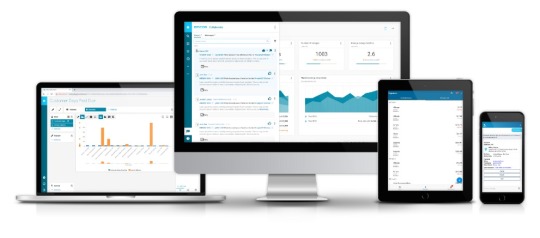
Epicor is a modern ERP solution that you can integrate with Magento, providing agility and flexibility to make smart decisions. Its highest aim is to improve customer responsiveness, streamline processes, and reduce costs.
Type: both cloud-based and on-premises
Number of customers: 7,591 companies
Recommended business size: 50–200 employees and $10M–50M in annual revenue
Key ERP features:
Financials
Human resources
Manufacturing management
Inventory management
Purchasing management
Quality management
Sales management
Key points of Magento ERP integration with Epicor:
Inbound cash receipts and sales order in Epicor
Inbound shipment creation, inbound customer, inventory and inbound products update at Magento
Sales order and Cash receipts in Epicor
Shipment creates, customer, inventory update, and product update
Consolidated invoice, outbound inventory, customer export, outbound product, outbound posed invoice, shipment export, and outbound sales order in Epicor ERP
7. Magento integration with JD Edwards

JD Edwards is a division of Oracle. The ERP solution’s full name is Oracle JD Edwards EnterpriseOne, which is suitable for all business fields of SMEs such as consumer goods, finance, human resources, manufacturing, and distribution.
Type: both cloud-based and on-premises
Number of customers: 17,158 companies
Recommended business size: 50–200 employees and $10M–50M in annual revenue
Key ERP features:
Asset lifecycle management (ALM)
Financial management
Human capital management
Project management
Order management
Manufacturing management
Key points of Magento ERP integration with JD Edwards:
Sync address books and update shipment between two systems
Sync taxes information from Oracle JD Edwards to Magento in real time
Update real time inventory and pricing between two systems
Pass orders and customers information from Magento to Oracle JD Edwards
Display all offline or online orders to see full order history on the Magento
Allow viewing receivable balances and making smart purchases
How to determine Magento ERP integration
After you have understood the methods and options for integrating ERP software with Magento, you’ll probably think about how to choose the most suitable ERP. There are some criteria we suggest to consider, such as:
Your business size
Magento version of your site (Open Source or Commerce)
Your types of data:
Determine all Magento data points that the ERP solution will need to accept
Match the data to correspond to fields in Magento and the ERP solution
Understand the frequency of data transactions (real-time, multiple times per day, nightly batch)
Determine where the data will be placed
Features of the ERP solution you intend to adopt and the Magento ERP integration method. For example, an ERP system can handle fulfillment operations to process your orders and shipping data so it’s recommended to check the compatibility before making a choice. Or whether you have offline stores, electronic data interchange (EDI) sales or other wholesale operations, or manufacture.
Can Magento be an eCommerce ERP?
After reading about connecting Magento and ERP functions, many merchants will ask a common question: Can Magento be an eCommerce ERP?

Magento is an open source eCommerce platform with high flexibility. Magento itself already covers basic operational features such as management for your customers, products, orders, shipping, and payments. Some Magento ERP even offer the ability to manage business processes such as product distribution and suppliers.
In other words, combining additional Magento extensions or using Magento omnichannel solutions can turn your Magento into a centralized ERP for retailers. They can help to expand Magento’s powerful capabilities to track all your business activities and boost your daily productivity.
Conclusion
Integrating ERP with Magento is possible and can bring many benefits to the eCommerce business. However, it will take huge financial resources and time to implement, so it is necessary to determine the strengths and weaknesses of the current solution, define the requirements of your business, list the criteria, and go with trusted providers.
Magento ERP integration can put you ahead in the race so it’s a worthy investment. The sooner you decide, the more you’ll save in the future.
Get a Free Business Consultation
The post Top 7 Magento ERP integrations (2021) appeared first on World’s #1 POS for Magento.
This post was first published here.
I hope that you found the above of help and/or interesting. Similar content can be found on our blog here: northtxpointofsale.com Let me have your feedback below in the comments section. Let us know what topics we should write about for you in the future.
youtube
#Point of Sale#clover Pos Reviews#Clover Support#harbortouch Pos#lightspeed Retail#lightspeed Software#shopkeep Reviews#toast Pos Pricing#toast Pos Reviews#toast Restaurant Pos#touchbistro Pricing
0 notes